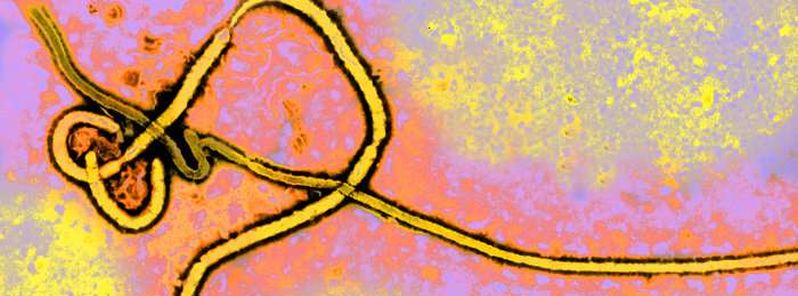Ebola outbreak declared in Democratic Republic of Congo, 17 deaths confirmed

At least 17 people have died in the north-west part of the Democratic Republic of Congo, where health officials have confirmed an outbreak of Ebola, the health ministry has said. The declaration of outbreak came after laboratory results confirmed two cases of the disease in Bikoro, Equateur Province in the northwestern part of the country.
A government statement released on May 8 states that the Ministry of Health has "taken all necessary measures to respond promptly and effectively to this new epidemic of Ebola in the DRC's national territory."
In the past five weeks, there have been 21 suspected cases of viral hemorrhagic fever, including 17 deaths, WHO confirms.
The Ministry of Health of Democratic of the Congo (DRC) informed WHO that two out of five samples collected from five patients tested positive for Ebola virus disease, Zaire strain, at the Institut National de Recherche Biomédicale (INRB) in Kinshasa. More specimens are being collected for testing.
"We will gather more samples, conduct contact tracing, engage the communities with messages on prevention and control, and put in place methods for improving data collection and sharing," said Dr. Matshidiso Moeti, the WHO's regional director for Africa, according to CNN. "WHO will work closely with health authorities and partners to support the national response."
Health minister Oly Ilunga said that a rapid response team would be deployed to the Équateur Province in the northwest of the country on the morning of May 9.
Communication spéciale du Ministère de la Santé suite à la notification de 2 cas confirmés d'#Ebola dans la province de l'Equateur. Une équipe d'intervention rapide du ministère sera déployée sur le terrain dès demain matin. pic.twitter.com/7emjxaYtSe
— Dr. Oly Ilunga (@OlyIlunga) May 8, 2018
Ebola is endemic to the Democratic Republic of Congo, and this is its ninth outbreak since the discovery of the virus in the country in 1976. The last outbreak occurred in 2017 in the northern Bas Uele province. That outbreak was quickly contained due to joint efforts by the government, the WHO, and other partners.
Ebola key facts:
- Ebola virus disease (EVD), formerly known as Ebola hemorrhagic fever, is a severe, often fatal illness in humans.
- The virus is transmitted to people from wild animals and spreads in the human population through human-to-human transmission.
- The average EVD case fatality rate is around 50%. Case fatality rates have varied from 25% to 90% in past outbreaks.
- The first EVD outbreaks occurred in remote villages in Central Africa, near tropical rainforests. The 2014–2016 outbreak in West Africa involved major urban areas as well as rural ones.
- Community engagement is key to successfully controlling outbreaks. Good outbreak control relies on applying a package of interventions, namely case management, infection prevention and control practices, surveillance and contact tracing, a good laboratory service, safe and dignified burials and social mobilization.
- Early supportive care with rehydration, symptomatic treatment improves survival. There is as yet no licensed treatment proven to neutralize the virus but a range of blood, immunological and drug therapies are under development.
Featured image: Ebola photomicrograph. Credit: The University of Texas Medical Branch at Galveston

Commenting rules and guidelines
We value the thoughts and opinions of our readers and welcome healthy discussions on our website. In order to maintain a respectful and positive community, we ask that all commenters follow these rules:
We reserve the right to remove any comments that violate these rules. By commenting on our website, you agree to abide by these guidelines. Thank you for helping to create a positive and welcoming environment for all.